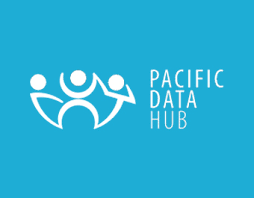Introduction:
The Agence Française de Développement confided this study to the Airaro1 consulting firm, which is based in French Polynesia, in consultation and unanimous agreement with the Polynesian Ministry of Public Works, Energy and Mines, the services of the High Commission of the French Polynesian Republic and the Agence pour le Développement et la Maîtrise de l'Energie (ADEME, Agency for the Development and Management of Energy).
The objective of this study was to provide an objective documentary source, relevant and usable for institutional and economic players at a regional colloquium on renewable energies which was to be organized by the French Polynesian community and the High Commission of the Republic in the second quarter of 2014. However, the date was put back due to local political changes which occurred following the last territorial elections (mid-2013). More largely, in the context of the fight against climate change, the subject of renewable energies takes on considerable importance. A large number of island States in the Pacific zone are extremely dependent on fossil fuels, and in the coming years, will face major impacts related to climate change (biodiversity, rising sea level, food security, ...).
It should be noted here that the small island countries (notably those of the Pacific) which belong to the intergovernmental organization AOSIS (Alliance of Small Island States), constitute a real lobbying force in the face of large industrialized countries at climate negotiations. Images of the Maldives' Council of Ministers meeting underwater demonstrate the will of small island States to make themselves heard at the highest levels. The notion of "climate refugees" is not a mere idea; it could soon become a veritable legal concept.This study in no way claims to meet these challenges, but strives to highlight some solutions which are working ("good practices" in donors' terms), in order to propose adapting or replicating them. The accepted approach is thus above all positive and constructive: solutions exist, sometimes at low cost, and the projects help give Pacific peoples the feeling that they belong to wider global community, not to mention a sometimes small but important part of their harmony.
The Agence Française de Développement wishes to thank all institutional and economic partners, as well as the intergovernmental bodies of the Pacific region, whose documents and analyses made this study possible.
Data and Resource
| Field | Value |
|---|---|
| Publisher | Pacific Data Hub |
| Modified | 03 September 2022 |
| Release Date | 06 April 2020 |
| Source URL | https://pacificdata.org/data/dataset/5b87a04f-dced-4475-ad59-e8c949917eea |
| Identifier | 5b87a04f-dced-4475-ad59-e8c949917eea |
| Relevant Countries | |
| License |
Public
![[Open Data]](https://assets.okfn.org/images/ok_buttons/od_80x15_blue.png)
|
